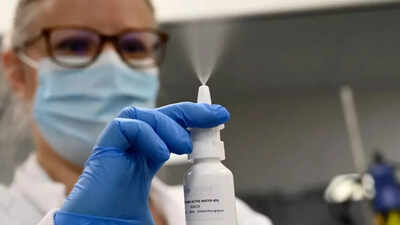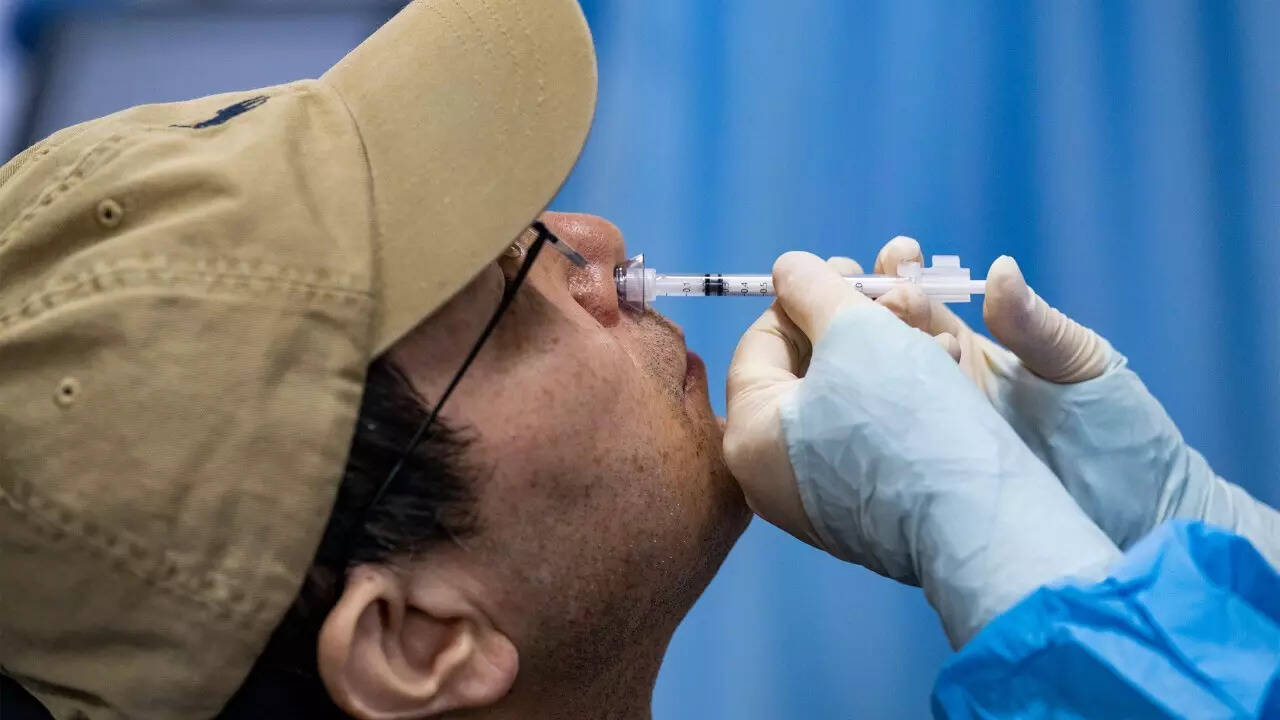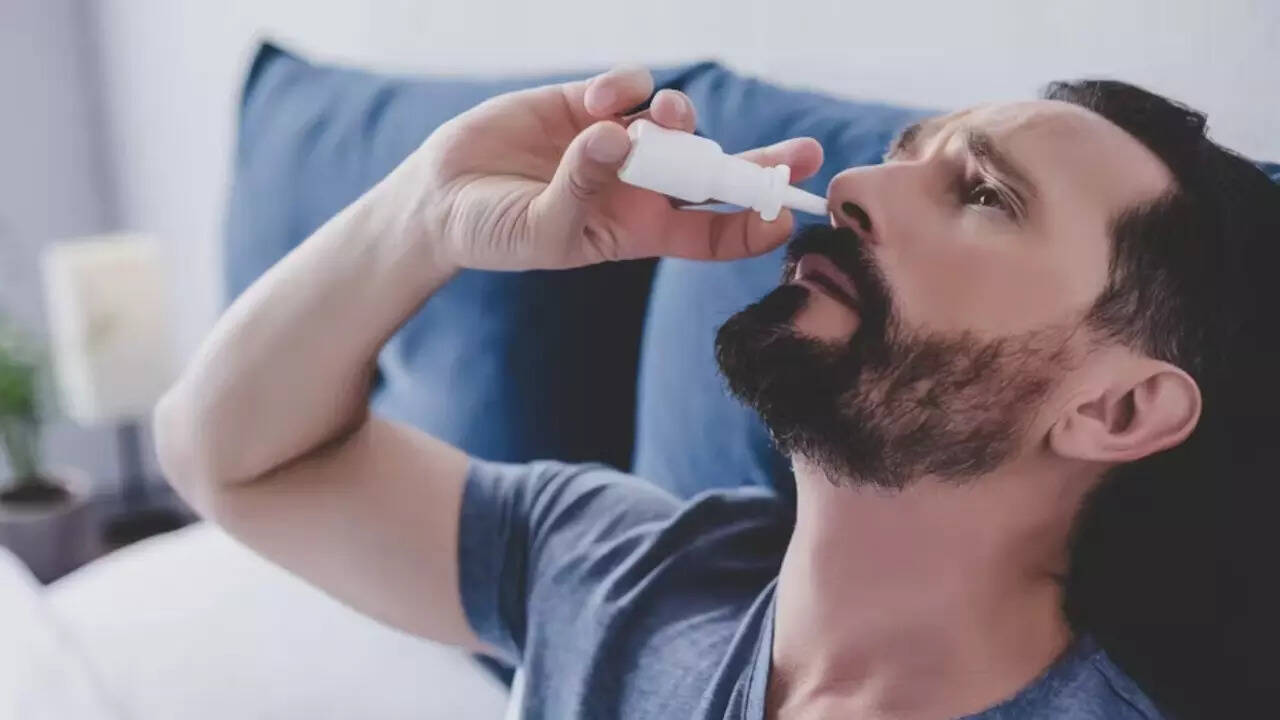THIS over-the-counter nasal spray can reduce your risk of COVID by 67%, new study reveals

Imagine having a simple nasal spray in your medicine cabinet that not only eases allergy congestion but also cuts your risk of catching COVID-19.According to a new clinical study, an over-the-counter antihistamine nasal spray is showing remarkable preventive effects against the virus. With COVID cases rising again, this affordable, accessible spray offers an extra layer of protection that could be a game-changer.Which nasal spray is it?Read on to find out.
What the study says
A groundbreaking study, published in JAMA Internal Medicine, shows that a common over-the-counter (OTC) nasal spray could slash your risk of catching COVID-19 by about 67%. Azelastine nasal spray, a widely available allergy treatment, may in fact significantly reduce the risk of SARS-CoV-2 infection.In the 56-day German trial involving 450 vaccinated adults aged 18 to 65, participants were divided into two groups. One sprayed azelastine (0.1%) into each nostril three times daily; the other received a placebo. By the end of the study, only 2.2% of the azelastine group had tested positive, compared with 6.7% of the placebo group, a roughly 67% reduction in infection risk. While it’s not a replacement for masks or vaccines, this simple nasal spray could become a valuable tool during high-risk moments, like crowded travel or big events.
Understanding Azelastine: More than just allergy relief
Azelastine is an established OTC antihistamine nasal spray for treating allergy symptoms like a runny nose and sneezing. It’s been in use for decades and has a solid safety record. Although it has long been trusted for treating hay fever and allergic rhinitis, laboratory studies have hinted at its antiviral abilities. The spray appears to reduce inflammation in the nasal lining, making it harder for viruses like SARS-CoV-2 to establish an infection.

Inside the study: A closer look
The study, led by researchers at Saarland University, recruited 450 healthy adults aged 18-65, most of whom had received COVID-19 vaccines. Participants were split into two groups: one applied azelastine spray (0.1%) three times daily in both nostrils, while the other used a placebo. Over 56 days, everyone was tested twice weekly using PCR tests.
The key findings
What did the researchers find?Lower infection rates: Just 2.2% of participants using azelastine tested positive, compared to 6.7% in the placebo group.Slower onset, milder symptoms: Those using the spray also experienced delayed infection, fewer symptoms overall, and shorter duration of illness.Broader protection: Interestingly, the azelastine group showed fewer cases of rhinovirus infections as well, suggesting broader antiviral benefits.Safe and easy to use: The spray had minimal side effects. Only two participants reported serious events, none tied to the treatment.
What experts say
Although the results of the study are significant, experts stress the fact that the findings stem from a phase 2 trial with a relatively small sample. Larger, multicenter trials are needed before we can consider azelastine a standard preventive tool. However, its established safety profile and OTC availability make it an inviting option for targeted, on-demand protection, especially during travel, large gatherings, or virus surges.
Beyond vaccines
Vaccination remains the primary defense against COVID-19. But with eligibility restrictions and varying access, not everyone can get boosted quickly. The azelastine spray offers a practical, supplemental shield, akin to mask-wearing or hand hygiene, for short-term, high-risk exposures. Think of this OTC nasal spray as another layer of protection.

Why this matters now
With COVID-19 cases rising and vaccination access narrowing in many areas, and with eligibility now often limited to adults 65+ or those with underlying conditions, having an extra protective layer could be game-changing.Experts suggest azelastine spray may serve as a harmless, easy-to-use preventive tool in high-risk situations, like crowded trains, concerts, planes, or flu season. However, it’s not a replacement for vaccines, masks, or good hygiene. Instead, it offers a simple supplement that could offer extra defense when layered with other measures.
What’s next?
This study opens the door for further exploration of nasal sprays as preventive tools, not just for COVID-19 but also for other respiratory viruses. Researchers stress the importance of larger trials to confirm efficacy and explore the duration of protection.Azelastine, the OTC nasal spray, may soon become more than just an allergy remedy; it could become a handy, accessible way to lower your chances of catching COVID by about two-thirds. While not a replacement for vaccines or masks, it offers a sensible, low-risk option to stay safer when the stakes are high.For now, keep up with standard practices: get vaccinated, wear masks in crowded spaces, and consider adding azelastine spray during high-risk times. As researchers continue to investigate, this familiar over-the-counter product may emerge as a trusted friend in our layered approach to respiratory health.




